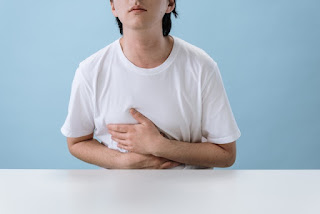 |
| Causes of Acute Diarrhea in Children and Treatment |
Acute diarrhea usually lasts 1–2 days and goes away on its own. This condition is actually common, but needs more attention when experienced by children. If not treated immediately, acute diarrhea can lead to dehydration which can be fatal.
Acute diarrhea is characterized by the frequency of defecating 3 or more times in 24 hours and the texture of the stool that looks liquid. This disease can be experienced by anyone, from children to adults.
Even so, the World Health Organization (WHO) says that children are more susceptible to acute diarrhea. Diarrhea is also known as a major cause of malnutrition and dehydration in children.
Causes of Acute Diarrhea in Children
Acute diarrhea can be caused by various things, including:
1. Viral infection
Rotavirus infection is one of the most common causes of acute diarrhea in children, especially those under 24 months of age. This virus can be transmitted through contact with water, food, toys, or other objects that have been contaminated with rotavirus.
Therefore, it is important to always wash your hands after changing diapers or bathing your little one. You also need to get your little one to always wash their hands before eating and after using the toilet.
2. Bacterial and parasitic infections
Exposure to bacteria, such as Escherichia coli and Salmonella, as well as parasites through the consumption of water and food is one of the causes of acute diarrhea in children. Bacteria and parasites can be in water and food that is not kept clean, as well as food that is not fully cooked.
3. Take antibiotics
Inappropriate use of antibiotics can upset the balance of 'good' bacteria in the gut, causing acute diarrhea. To avoid this, make sure your little one takes antibiotics according to the prescription and dosage suggested by the doctor.
4. Lactose Intolerance
Acute diarrhea in children can also arise as a result of lactose intolerance, a condition in which the body is unable to fully digest lactose or the sugar contained in milk or dairy products.
This condition is actually not dangerous, but if not treated carefully, lactose intolerance actually triggers prolonged diarrhea.
Proper Treatment for Acute Diarrhea in Children
Acute diarrhea can cause your little one to become dehydrated and lack nutrition. There are several ways you can do to maintain the fluid and nutritional intake needs of your little one who is experiencing acute diarrhea:
- Give ORS fluids to replace lost fluids in the Little One's body.
- Give foods that contain lots of water, such as soup or coconut water.
- Give foods that are high in potassium, such as bananas.
- Give food in small portions and often.
- Give breast milk more often than usual, if your little one is still breastfeeding.
- Avoid giving sugary and fizzy drinks.
In addition to the above methods, always apply clean and healthy living behavior (PHBS) to avoid the risk of viral, bacterial, or parasitic infections that can cause acute diarrhea.
Acute diarrhea in children should not be underestimated. If after 1-2 days diarrhea does not go away or is accompanied by blood in the stool, fever, and persistent vomiting, immediately take your child to the doctor so that he can get the right treatment.
Related Search:
- acute diarrhea,
- acute diarrhea causes,
- acute diarrhea icd 10,
- icd 10 acute diarrhea,
- the most appropriate therapy for a patient with acute diarrhea caused by a viral infection is to,
- acute diarrhea in dogs,
- a nurse is caring for a toddler who is experiencing acute diarrhea,
- acute diarrhea treatment,
- icd 10 code for acute diarrhea,
- a nurse is caring for a toddler who is experiencing acute diarrhea and has moderate dehydration,
- acute diarrhea treatment guidelines,
- acute diarrhea workup,
- acute diarrhea of infancy,
- the best treatment for acute diarrhea is oral replacement of electrolytes and water.,
- treatment of acute diarrhea in elderly,


